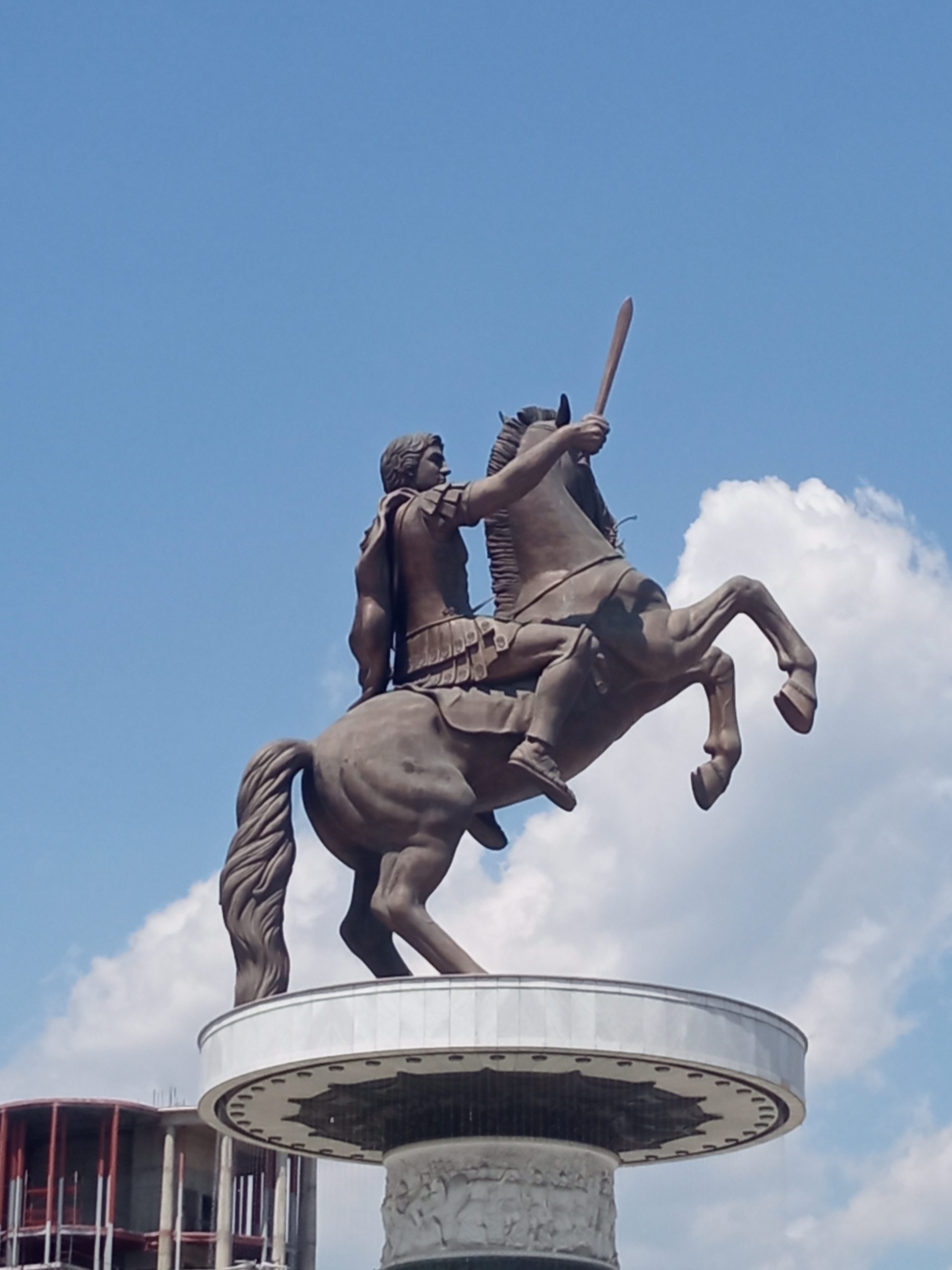The ‘Warrior on a Horse’ statue sits in the center of Macedonian square in the Balkan capital city of Skopje, North Macedonia. A plaque on the side of the monument dedicates it to the ancient ruler and conqueror Alexander the Great. The sculptor of the giant statue is Valentina Stevanovska.
The Warrior on the Horse statue, also known as the Alexander the Great statue, is a source of controversy that has captured the attention of the world. The statue is located in the center of Skopje, the capital of North Macedonia, and depicts Alexander the Great, who is considered a national hero by the Greeks. However, the Macedonian government’s decision to erect the statue as part of a larger urban revitalization project sparked controversy.
Greece opposed the project, claiming that it was an attempt to appropriate Greek history and culture. According to Greece, the statue of Alexander the Great implied a territorial claim on northern Greece, where Alexander was born. The controversy escalated to the point where Greece cut diplomatic ties with North Macedonia for several years.
In 2018, the two countries reached a historic agreement to resolve their differences, which included changing the country’s name from Macedonia to North Macedonia. Despite the agreement, the controversy surrounding the statue remains a contentious issue between the two countries. While the statue continues to serve as a symbol of national identity for North Macedonia, Greece maintains its opposition to the portrayal of Alexander the Great outside of Greek territory.
The Warrior on the Horse statue has become a symbol of the complicated history and relationship between Greece and North Macedonia. It has sparked discussions about cultural appropriation and the ownership of historical figures, and serves as a reminder that history and national identity are not always clear-cut. Despite the controversy, the statue remains a significant landmark in Skopje and attracts visitors from all over the world.
Alexander the Great
Alexander the Great was a king of Macedon and one of the most successful military commanders in history. Born in 356 BC, he was the son of King Philip II and received a classical education from Aristotle. After his father’s assassination, Alexander ascended to the throne at the age of 20 and began his conquests, which would eventually expand Macedon’s territory to the largest it had ever been. He conquered much of the known world at the time, including the Persian Empire, Egypt, and parts of India, and his military tactics and strategies are still studied today. Despite his untimely death at the age of 32, Alexander’s legacy lived on and he is considered one of the greatest military leaders in history.







